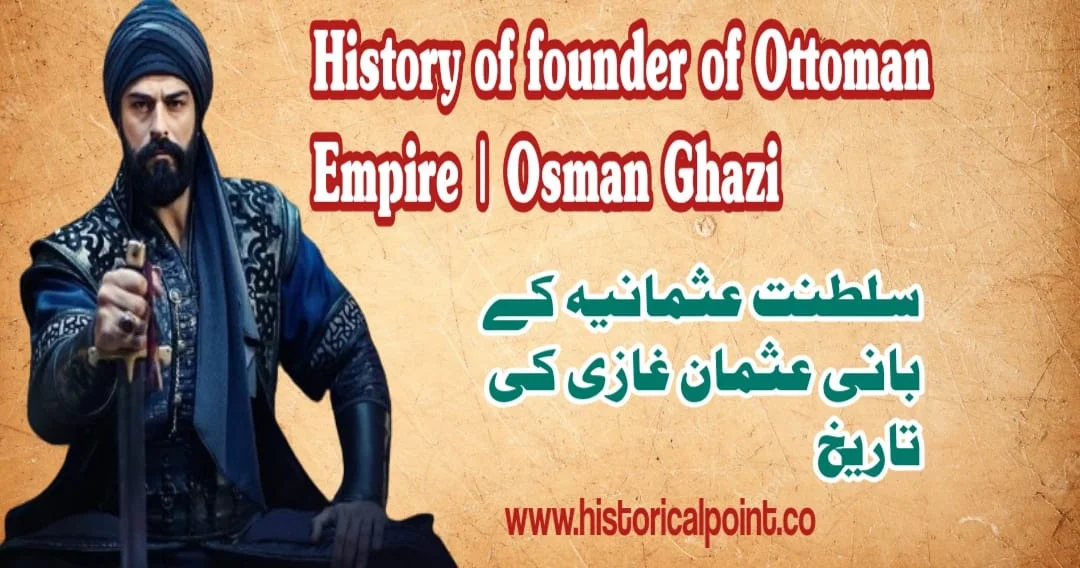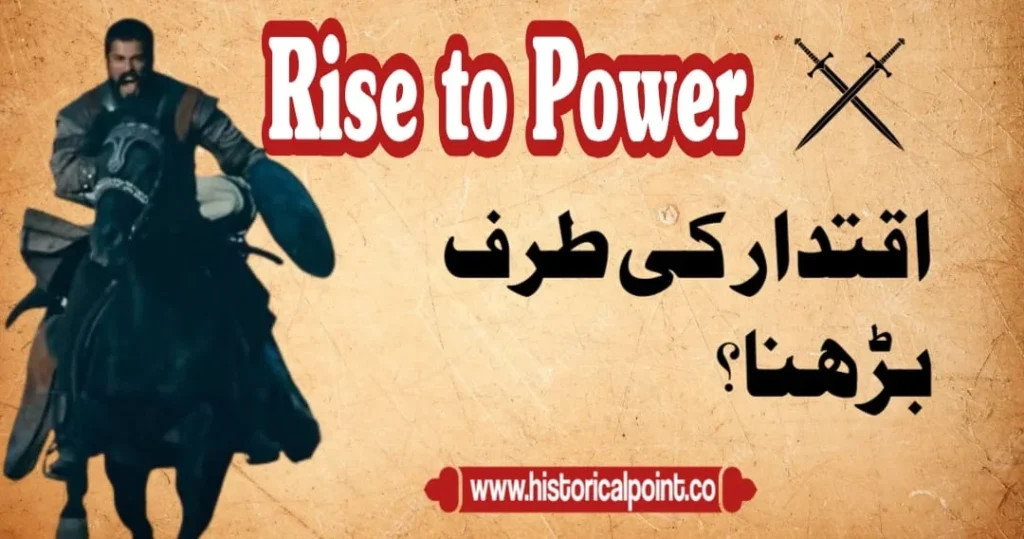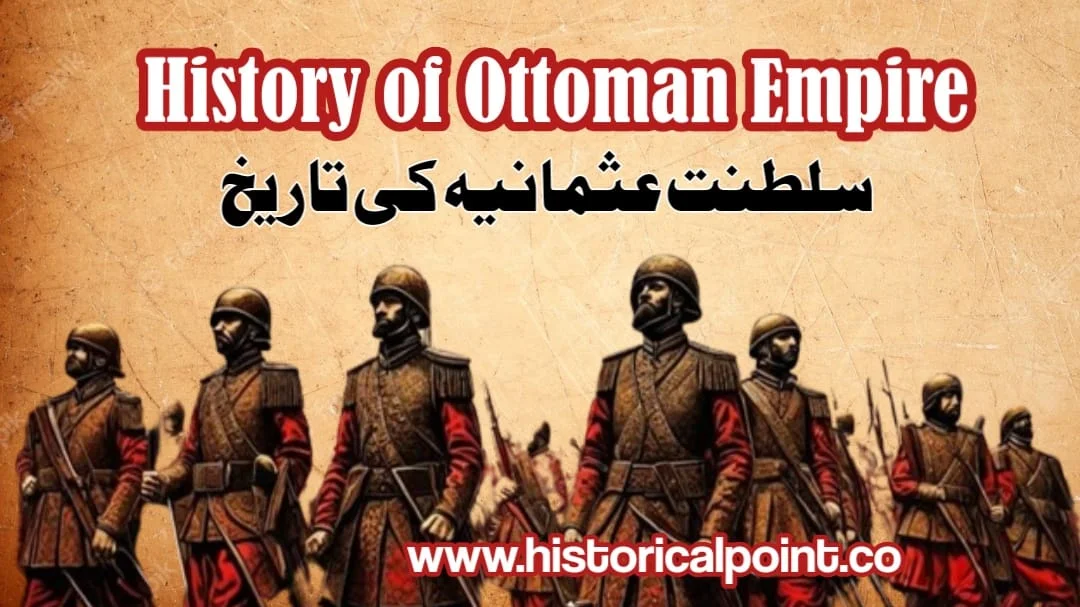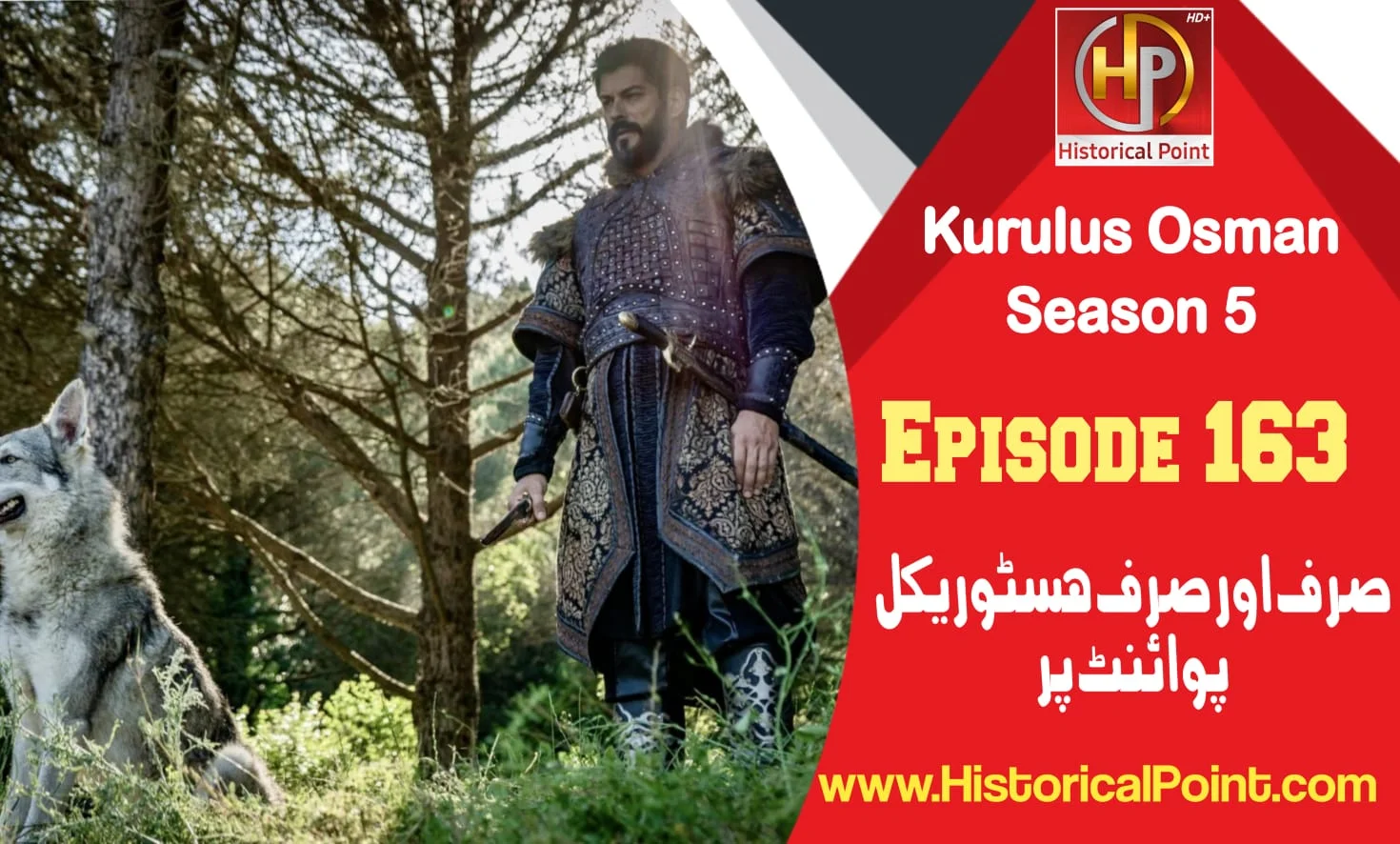
Explore the life and legacy of Osman Ghazi, founder of the Ottoman Empire, from his rise to power to his lasting impact on history. The Ottoman Empire, one of history’s most powerful and enduring empires, traces its origins to a remarkable leader: Osman Ghazi.
As the founder of the Ottoman dynasty, Osman Ghazi’s legacy is monumental, paving the way for an empire that would dominate regions across Europe, Asia, and Africa for over six centuries. This blog delves into the life, achievements, and historical significance of Osman Ghazi, exploring the early years of the Ottoman Empire and the profound impact of its founder.
Early Life of Osman Ghazi
Birth and Ancestry
Osman Ghazi, also known as Osman I, was born around 1258 in the town of Sogut in modern-day Turkey. He was a member of the Kayı tribe, part of the larger Oghuz Turkish confederation. His father, Ertugrul Ghazi, was a prominent tribal leader who established a principality in the northwestern part of Anatolia. Osman’s lineage traced back to the legendary figure of Oghuz Khan, giving him a prestigious heritage that would bolster his leadership credentials.
Childhood and Upbringing
Osman grew up during a tumultuous period marked by the decline of the Seljuk Sultanate of Rum and the fragmentation of Anatolian beyliks (principalities). His early years were influenced by the nomadic lifestyle of the Turkish tribes, characterized by martial training, tribal loyalty, and a deep-rooted sense of identity and independence. These formative experiences equipped Osman with the skills and mindset necessary to lead and expand his territory.
Rise to Power

Succession of Leadership
Following the death of his father, Ertugrul Ghazi, in 1281, Osman assumed leadership of the Kayı tribe. At that time, the tribe controlled a modest principality centered around the town of Sogut. Osman’s leadership was soon tested by external threats and internal challenges, but his strategic acumen and charismatic leadership helped him consolidate his power and gain the loyalty of his followers.
Strategic Alliances and Military Campaigns
One of Osman’s significant achievements was his ability to forge alliances with other Turkish tribes and local leaders. He skillfully navigated the complex political landscape of Anatolia, securing support from influential figures and expanding his influence.
Osman’s early military campaigns targeted the weakening Byzantine Empire, which controlled several fortified cities and regions in Anatolia. His conquests included the towns of Kulaca Hisar and Yenişehir, which provided strategic advantages and resources for further expansion.
Establishment of the Ottoman Beylik
Conquest of Bilecik and Yarhisar
Osman’s strategic acumen and military prowess came to the forefront during his conquests of Bilecik and Yarhisar. These victories in the early 14th century marked significant milestones in the establishment of the Ottoman Beylik. The capture of these fortified towns not only expanded Osman’s territory but also demonstrated his ability to defeat well-fortified Byzantine positions.
Battle of Bapheus
One of the most crucial battles in Osman’s early career was the Battle of Bapheus in 1302. This battle, fought near Nicomedia (modern-day Izmit), saw Osman’s forces decisively defeat a Byzantine army.
The victory at Bapheus was a turning point, as it significantly weakened Byzantine control in the region and established the Ottomans as a formidable power. This battle also marked the beginning of a series of Ottoman expansions that would eventually lead to the empire’s dominance in the region.
Governance and Administrative Policies
Establishment of a Just Rule
Osman’s leadership was not solely defined by his military conquests. He was also known for his efforts to establish a just and effective administration. Drawing from Islamic principles and tribal customs, Osman implemented policies that promoted justice, equity, and stability. His governance attracted settlers and loyal followers, fostering a sense of unity and purpose among the diverse populations within his realm.
Legal and Administrative Reforms
Osman Ghazi’s administration laid the foundation for the legal and administrative systems that would later characterize the Ottoman Empire. He introduced reforms to streamline governance, improve taxation, and enhance the administration of justice. These reforms helped create a stable and efficient government, which was crucial for managing the expanding territories under Ottoman control.
Legacy and Historical Significance
Establishment of the Ottoman Dynasty
Osman Ghazi’s most enduring legacy is the establishment of the Ottoman dynasty. The principality he founded in the late 13th century would evolve into one of the most powerful and influential empires in world history. The Ottoman dynasty would go on to rule vast territories for over 600 years, leaving an indelible mark on the history and culture of the regions it controlled.
Impact on Anatolian and Balkan History
Osman’s conquests and the subsequent expansion of the Ottoman Empire had a profound impact on the history of Anatolia and the Balkans. The Ottomans played a crucial role in shaping the political, social, and cultural landscapes of these regions. Their influence extended to various aspects of life, including architecture, language, religion, and trade.
Cultural and Religious Contributions
Promotion of Islam
Osman Ghazi was a devout Muslim, and his leadership was deeply influenced by Islamic principles. He promoted the spread of Islam in the territories he conquered, building mosques, madrasas (Islamic schools), and other religious institutions. This religious patronage helped establish Islam as a dominant force in Anatolia and the Balkans, contributing to the cultural and religious transformation of these regions.
Cultural Patronage and Legacy
Osman’s legacy also includes his contributions to the cultural and intellectual life of his time. He supported scholars, poets, and artists, fostering a vibrant cultural environment. This patronage laid the groundwork for the rich cultural heritage that would flourish under later Ottoman rulers.
Click here to read about the History of Ottoman Empire.
Challenges and Controversies

Conflict with Byzantine and Mongol Forces
Osman’s rise to power was not without challenges. He faced significant opposition from the Byzantine Empire, which sought to retain control over its Anatolian territories. Additionally, the Mongol invasions and the presence of other rival Turkish beyliks posed constant threats to Osman’s nascent state. His ability to navigate these challenges and emerge victorious is a testament to his strategic brilliance and resilience.
Succession and Internal Strife
Like many founders of dynasties, Osman faced issues related to succession and internal strife. Ensuring a smooth transition of power and maintaining unity among his followers required careful planning and political acumen. Osman’s ability to address these challenges effectively helped solidify the foundation of the Ottoman state.
Death and Succession
Passing of Osman Ghazi
Osman Ghazi passed away around 1323 or 1324, after a long and eventful reign. His death marked the end of an era, but his legacy lived on through his successors and the empire he founded. Osman’s final resting place is in the town of Sogut, where a mausoleum was later constructed in his honor.
Succession by Orhan Ghazi
Following Osman’s death, his son Orhan Ghazi succeeded him as the leader of the Ottoman Beylik. Orhan continued his father’s legacy of expansion and consolidation, further strengthening the foundations of the Ottoman Empire. Under Orhan’s leadership, the Ottomans captured the important city of Bursa, which became the new capital and a significant center of Ottoman administration and culture.
Conclusion
Osman Ghazi’s life and legacy are integral to the history of the Ottoman Empire. As the founder of the Ottoman dynasty, his leadership, strategic acumen, and vision laid the groundwork for an empire that would endure for centuries.
Osman’s contributions to governance, culture, and religion had a lasting impact on the regions under Ottoman control, shaping their histories in profound ways. His story is a testament to the power of visionary leadership and the enduring legacy of a remarkable individual.



